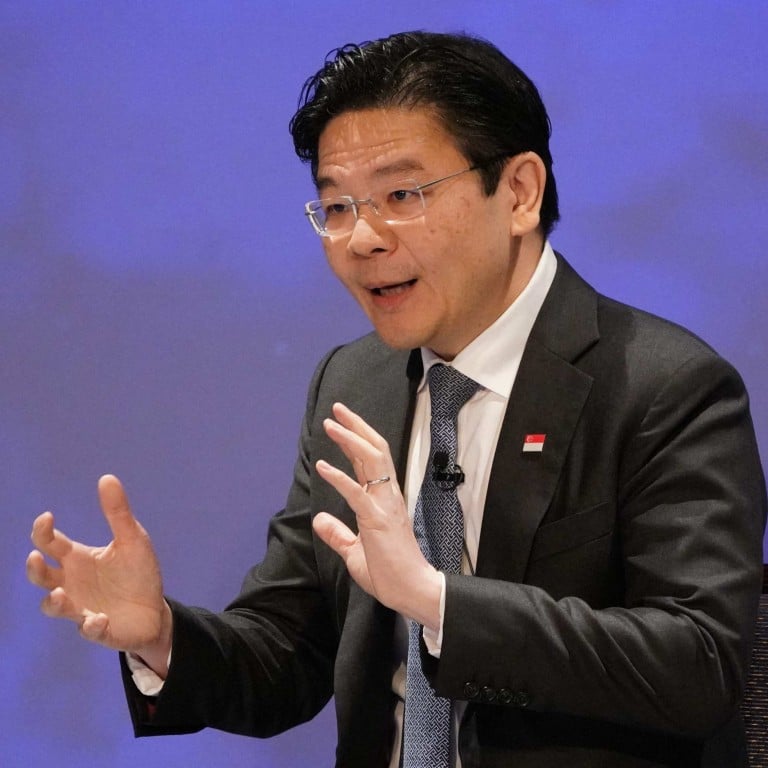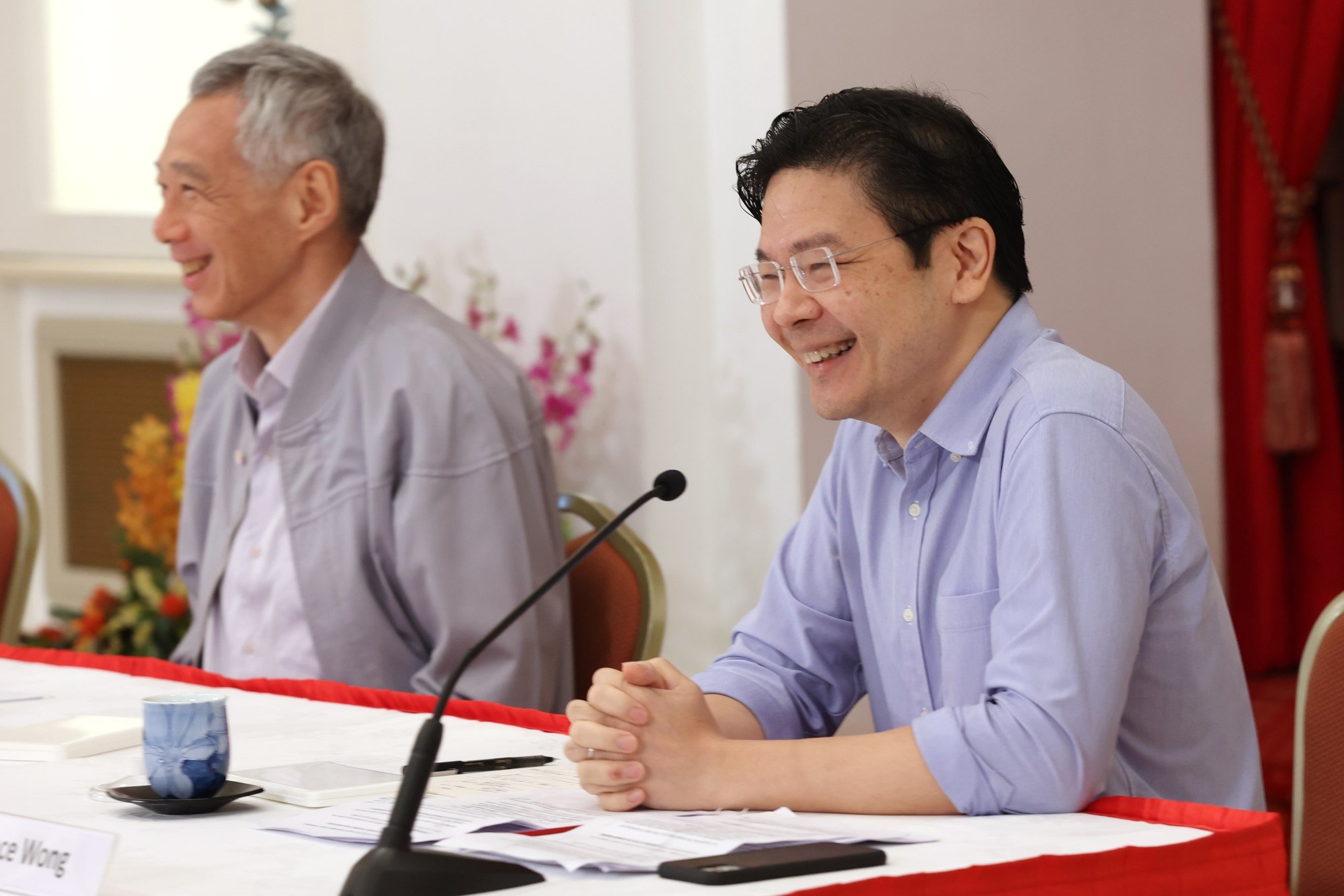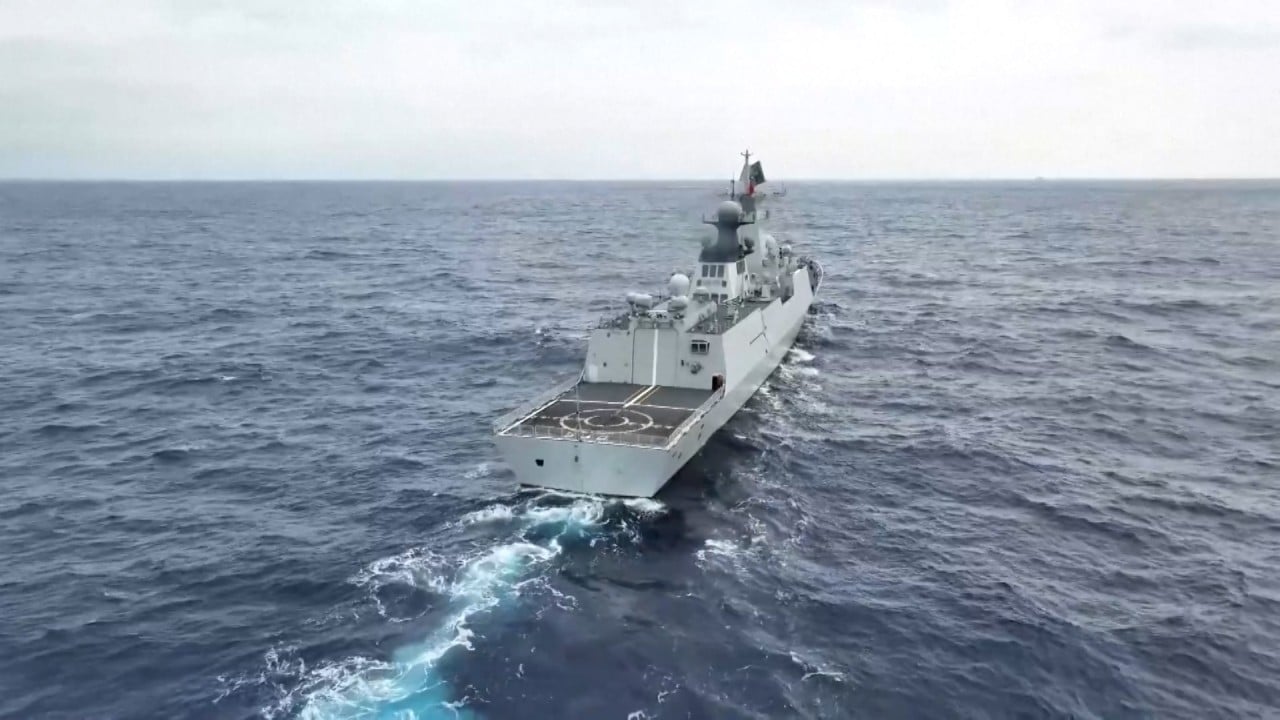
US and China have ‘irreconcilable differences’ but there’s hope they can coexist: Singapore’s Lawrence Wong
- The city state’s No 2 leader made the remarks at a speech in Tokyo, where he said the Taiwan situation was getting ‘more dangerous’ amid the US-China rivalry
- He also cautioned countries against taking ‘de-risking too far’, saying it would over time lead to a more fragmented global economy
The prime minister-in-waiting has increasingly been commenting on world affairs ahead of a planned leadership transition, and in remarks during a forum in Tokyo, Wong said he was also stepping up overseas engagements.
“All the relevant parties, America, China and Taiwan, say their policies have not changed,” Wong said at Nikkei’s Future of Asia conference. “But in reality, they are all reacting to one another. So the situation is not static – any incremental move by one party has its own dynamic, its own domestic political pressure, and it elicits a countermove by another.
“As a result, the situation is becoming more dangerous, and we are moving closer to the edge,” Wong said. “So while all sides do not want a direct conflict, the risks of an accident or miscalculation have increased considerably.”
Noting that the situation in Taiwan and the broader US-China rivalry would depend “largely on the actions of the two powers” and that some of their differences appeared insurmountable, Wong said there was still hope that “both sides will be able to manage their differences, focus on the issues where they share common ground, and with time, gradually find a basis to rebuild trust, to coexist and work together”.
Singapore must dig deep to thrive as ‘big boys’ intensify self-shoring: deputy PM
On the economic front, Wong said while it was understandable why countries were seeking to de-risk or diversify, it was hard to see how doing so could be confined to just a few strategic areas without affecting broader economic interactions.
“If de-risking is taken too far, it would prompt reactions and unintended consequences,” said Wong, the deputy prime minister and minister of finance. “Over time, we will end up with a more fragmented and decoupled global economy.”
In a question-and-answer session, Wong was asked by Nikkei’s chief of international news Shigesaburo Okumura about Washington’s assertion that the superpower rivalry was one that pitted democracy against autocracy. Okumura asked Wong for his views on Singapore’s omission from the US-hosted Democracy Summit.
In response, Wong said the city state was “comfortable with who we are, and we really do not need external parties or external events to validate our status”.
Wong said there was a wide diversity in governance systems around the world, and that in some countries that did not have universal suffrage, “they will tell you the majority of the people will be quite happy with their systems, rather than to have external parties impose their values, their systems on them”.
“So, the reality is that we live in a more complex world, far more complex world, that cannot be easily distilled into binary labels,” Wong said.

The 50-year-old also fielded a question on the progress of Singapore’s planned power transition – a now-recurring question posed to him and Prime Minister Lee in public forums.
Wong repeated the publicly stated position by both leaders, that the move would take place before or after the country’s next general election, which is due by 2025. Observers have suggested it is more likely that Lee would remain prime minister until after the vote, rather than hand over power before the poll. There is some speculation that the election could be called a year earlier than the deadline – possibly in the first half of 2024.
The republic is due to have a separate election in the coming months for the presidency, a largely ceremonial position.
“When the leadership succession occurs can be before the election or it can be after the election. These are the options and we haven’t decided (between them). But it will happen, it is just a matter of time,” Wong said.
For now, Wong said he had “many other preoccupations”, outlining concerns by Singaporeans about the economy, jobs, cost of living and housing, as well as his stepped up overseas engagements.
Additional reporting by Bloomberg


